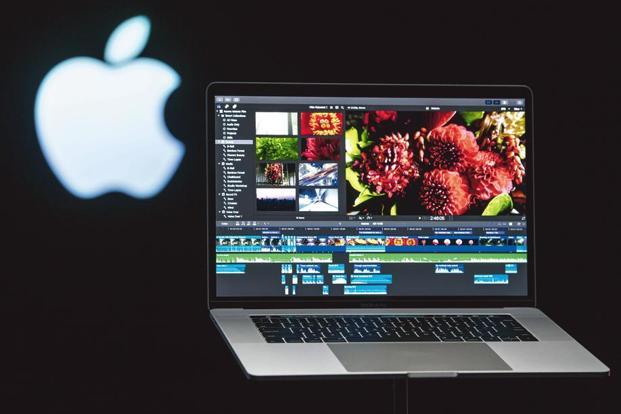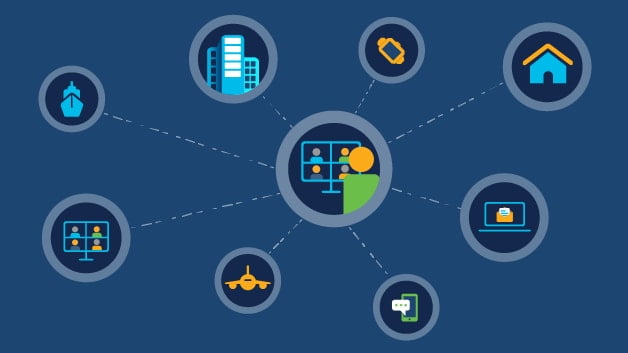

Computing devices and smart gadgets are set to evolve further with sleeker designs, better security and innovative features in 2017. Here’s a glimpse of how some technology companies are going about the task and trends like big data and security are aiding this evolution.
What next for Apple’s productivity push?
Having mended bridges with the likes of International Business Machines Corp. (IBM) and Microsoft, and forged partnerships with the likes of Cisco and Deloitte, Apple is in the midst of making its most aggressive push into the enterprise ecosystem. These partnerships take care of the software side of things, but the conundrum remains with the hardware. There is a definite potential of cannibalization within the computing device line-up, with the MacBook Airs, iPad Pros and MacBook Pros fighting for a common demographic, for the most part. Apple will also have to contend with some amount of criticism in 2017, with the underwhelming upgrades to the MacBook Pro line-up—this at a time when Microsoft flexed its muscles with the Surface Studio. Nevertheless, the iPhone remains as solid as ever for enterprise users.

Though arguably, the first time ever, Microsoft has started to beat Apple at the innovation and design games, but just how they follow it up in 2017 will matter a lot. Photo: Reuters
Microsoft’s Surface gambit: Revive the PC market?
At a time when personal computer, or PC, shipments have been steadily declining, Microsoft seems to have taken it upon itself to set the benchmark in the ecosystem. And in the process, also show off what it is capable of. The Surface Studio all-in-one (AIO) with the Pixel Dial joins the Surface Pro and Surface Book portable Windows convertibles, and is indeed revolutionary. The 28-inch PixelSense display is believed to be the slimmest of its kind, and has 63% more pixels than a 4K TV. With prices starting $2,999 (Rs2,00,000 approximately), it isn’t going to fly off the shelves.
Though arguably, the first time ever, Microsoft has started to beat Apple at the innovation and design games, but just how they follow it up in 2017 will matter a lot. Flexing of the muscles aside, the real utility will now need to stand out—and that holds true for the entire laptop and convertible market.

Massachusetts Institute of Technology (MIT) and Ford Motor Co. are collecting the cellphone location data of as many as two million Boston city residents; the idea is to create near-instant urban mobility patterns which would otherwise have taken years to collect, decipher and work on. Photo: Bloomberg
Big data: It’ll be bigger
While there is considerable focus on smart cities, public transport and smarter infrastructure, there remains an ever-increasing need for data to make these systems work. For example, Massachusetts Institute of Technology (MIT) and Ford Motor Co. are collecting the cellphone location data of as many as two million Boston city residents; the idea is to create near-instant urban mobility patterns which would otherwise have taken years to collect, decipher and work on. Big data will be ever so critical for corporations, governments and also for research, and this is what will drive productivity, innovation and collaboration.

Pixel has shown just how good Android can be.
Google’s Pixel hardware game: A new innings
With the Pixel phones, there has been a constant emphasis on the ‘Made by Google’ aspect. It is clear that the software and services major wants to get into the hardware game, on its own terms. And so it has, wielding greater control over the successors to the Nexus smartphones. Finally, Android as a platform is shining through—unhindered, unwrapped and uncluttered. Pixel has shown just how good Android can be, but Google needs to fix bigger problems—the world is still buying Android phones made by the likes of Samsung, Motorola and a whole bunch of Chinese brands, and they have no control over that—customization, lack of software updates and more. Do we see an even bigger Pixel smartphone line-up, covering more affordable price points?

AI2, a new system developed by researchers at MIT, uses machine learning to flag potential cybersecurity threats and attacks. Photo: Getty Images
Security: Artificial Intelligence (AI) to prevent cyber-attacks?
In today’s world, cybersecurity is managed by a combination of humans and machines, with the latter usually configured by the former, and there remains genuine room for error. This is where the researchers from the MIT, perhaps, have a solution for the future—a new system called AI2. It uses machine learning to flag potential security threats and attacks. The human element remains, but the new system can actually scan and flag a lot more data than any human can.

Dell XPS 13 offers a 360-degree hinge for multiple productivity.
Dell’s ultimate ultrabook becomes flexible
The Dell XPS 13 is perhaps the best ultrabook in the Windows laptop ecosystem. Earlier this month, at the Consumer Electronics Show (CES) in Las Vegas, the company unveiled an upgrade with newer Intel processors as well as more powerful specifications in general. According to a press release from the manufacturer, the product offers a 360-degree hinge for multiple productivity and viewing options using Continuum, 15 hours of battery life and excellent clarity with an amazing QHD+ (5.7M pixels) InfinityEdge touch display—another first for a 2-in-1.
[Source:-Livemint]





